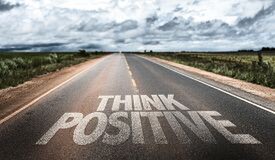Heal yourself or get someone who is able to see who your are to help you create a healing belief in yourself
Placebo effects are typically referred to as the effects of an inert substance like a sugar pill, but that's a misunderstanding. According to Harvard researcher Ted Kaptchuk, placebo effects are "improvements in patients' symptoms that are attributable to their participation in the therapeutic encounter, with its rituals, symbols, and interactions."
Consider the following examples:
All of this suggests that the effects of an intervention—whether it is pharmaceutical, herbal, dietary, or something else—depend in large part on our thoughts, feelings, and beliefs about that intervention.
It also suggests that instead of trying to get rid of the placebo effect (which is the goal of drug companies in clinical trials, since their drug won't be approved if it doesn't outperform placebo), we should be figuring out how to harness it. Studies are already underway with this exact purpose.
For example, taking placebo pills along with active medication may enable patients to reduce the dose of the active medication that they take. Studies have also indicated that placebo is still effective even when the patients know they are taking a placebo, which opens the door for placebo to be ethically and responsibly used by clinicians. There are even a few companies now selling placebo medications online!
Consider the following examples:
- Several studies have shown that placebo surgeries—where the patient is cut open but no surgery is performed—are as effective as real surgeries. This has been observed in conditions ranging from angina to arthritis in the knees.
- In one trial, researchers told patients they were injecting them with a powerful Parkinson's drug called apomorphine, but instead injected them with saline. Brain scans showed that the saline injections had effects that were indistinguishable from the real drug.
- Valium, which is widely prescribed for anxiety disorders, has no effect unless patients know that they are taking it.
- Another trial divided patients with IBS into three groups (none of which received "active" treatment). The first group received no treatment, the second group received fake acupuncture from a polite but cold practitioner, and the third group received fake acupuncture from a warm, caring practitioner who sat with them for 45 minutes. 28% of the group that didn't receive any treatment got adequate relief from their symptoms. 44% of those that received fake acupuncture alone got adequate relief. But in the group that received both fake acupuncture and empathic care, 62% achieved "adequate relief." This effect is as strong as any active drug that has ever been tested for IBS.
- It is well known that the color and shape of pills influence their results. For example, blue pills are typically more effective for sleep—except for men in Italy. Researchers believe this is because the national soccer team in Italy wears blue uniforms, and the blue color of the pills has a stimulating effect on Italian men!
All of this suggests that the effects of an intervention—whether it is pharmaceutical, herbal, dietary, or something else—depend in large part on our thoughts, feelings, and beliefs about that intervention.
It also suggests that instead of trying to get rid of the placebo effect (which is the goal of drug companies in clinical trials, since their drug won't be approved if it doesn't outperform placebo), we should be figuring out how to harness it. Studies are already underway with this exact purpose.
For example, taking placebo pills along with active medication may enable patients to reduce the dose of the active medication that they take. Studies have also indicated that placebo is still effective even when the patients know they are taking a placebo, which opens the door for placebo to be ethically and responsibly used by clinicians. There are even a few companies now selling placebo medications online!
